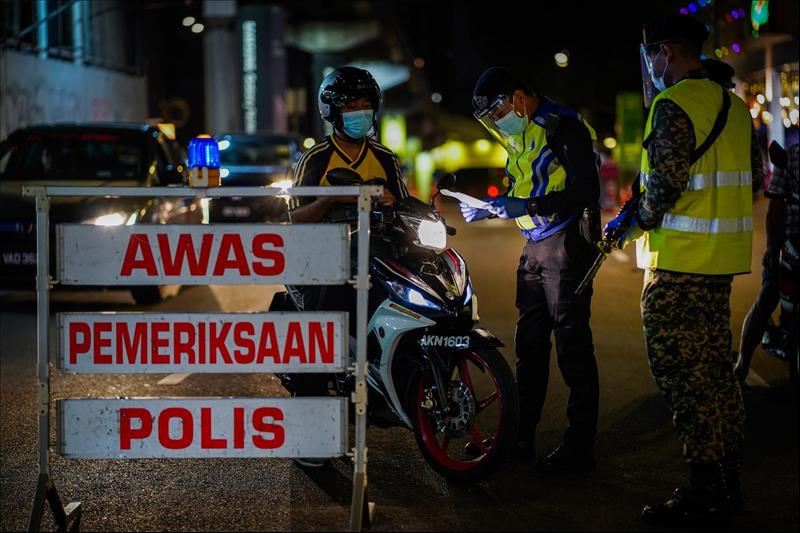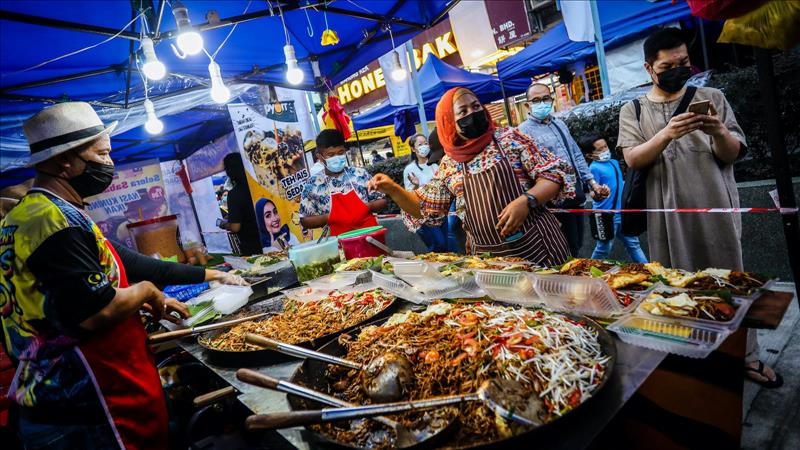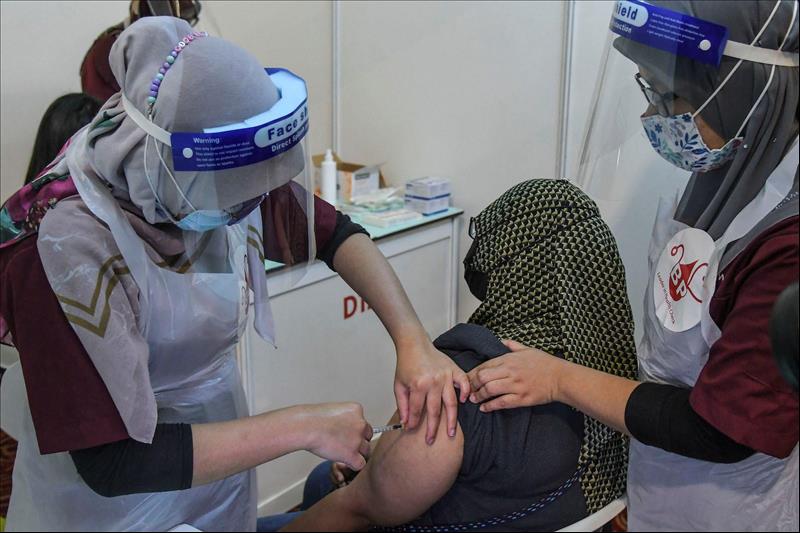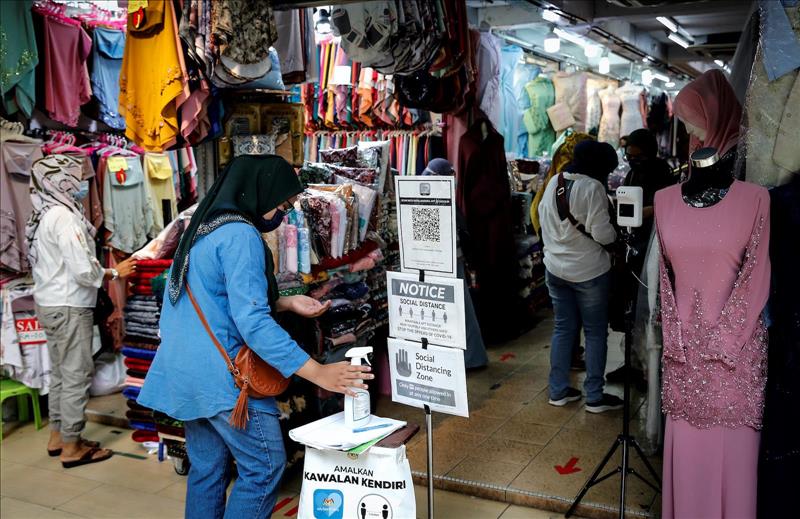(MENAFN- Asia Times) SINGAPORE – Malaysia is set to begin its third nationwide lockdown following its deadliest week on record since the onset of the Covid-19 pandemic. Prime Minister Muhyiddin Yassin announced that the entire country will be placed under movement control order (MCO) restrictions from May 12 to June 7 during a televised address on Monday.
''There are now Covid-19 variants that are more infectious while the capacity of the public health system is becoming more critical. There are also weaknesses in Covid-19 protocol compliance by some. These factors demand that the government take drastic action,'' said the premier, who in March had previously ruled out imposing a third MCO.
Health experts say inadequate early detection testing is to blame for the surge of increasingly severe coronavirus cases nationwide, which has intensive care units (ICU) across the country at full or near-capacity, a situation that threatens to tilt towards an India-like health crisis.
The country's most recent seven-week lockdown, enacted from January to March to combat a deadly third wave that began last year, saw daily cases initially taper down but then surge again by early April. The disease's effective reproduction number (Rt) has been above 1.0 for more than a month consecutively, pointing to exponential recent growth.
Active cases have more than doubled since mid-April, increasing from around 15,000 cases to more than 37,300. According to the Ministry of Health (MoH), cases of severe infection requiring treatment with oxygen or ventilators are rising and impacting younger people, leading to an all-time high of more than 400 patients in the ICU over the last week.
''A number of significant variants of the Covid-19 virus have been responsible for a more rapid spread of and a more virulent version of the disease,'' said Amar-Singh HSS, a senior consultant pediatrician based in the Malaysian city of Ipoh. ''If significant variants become widespread, they may hamper vaccination efforts and worsen the current outbreak.''
Malaysia detected its first case linked to India's highly contagious B1617 variant earlier this month and has banned flights to and from the populous South Asian nation. The World Health Organization (WHO) named the strain a ''variant of concern'' on May 10, with it being one of four mutations linked to a more transmissible form of the pneumonia-like disease.

Malaysian security officers stop motorcyclists and checking their documents during the second movement control order to curb the spread of the Covid-19 virus in Kuala Lumpur, January 19, 2021. Photo: Afif Abd Halim/NurPhoto via AFP
The MoH has also detected variants from the United Kingdom and South Africa among its community cases, mutations that it says are partly to blame for a 35.2% rise in severe symptoms from January to April. A record-high total of 150 people died from Covid-19 in the first week of May, along with the highest-ever number of patients on ventilators (216).
Total cases since the start of the pandemic now stand at 444,484 with 1,700 deaths, leaving Malaysia with the third-highest infection rate in the region behind Indonesia and the Philippines. With hospital bed capacity at its limit across the country, authorities appear to have resorted to a third MCO as a last-ditch effort to buy time for the healthcare system.
The announcement of another nationwide lockdown was unexpected given that the government previously said it would only utilize targeted lockdowns going forward, with Johor Bahru and parts of Selangor state, as well as the capital Kuala Lumpur, each being recently placed under area-specific MCOs for up to two weeks.
Given the economic damage from two prior lockdowns and tranches of stimulus spending that have strained national finances, Putrajaya has been reluctant to impose heavier restrictions following the second MCO, even turning down requests by state governments for tougher curbs due to concerns that economic activity would be adversely impacted.
The government has seemingly found itself in a loop of prematurely relaxing virus-curbing restrictions for economic reasons, while thereafter showing hesitancy to undertake nationwide MCO measures in response to rising outbreaks, only to announce a new lockdown when hospitals are at full or near-capacity.
''All economic sectors'' will be allowed to operate during the impending lockdown, though all schools and childcare centers will close, Muhyiddin said in his speech. All forms of social gatherings, including sports and educational activities, will be prohibited, as will cross-district and interstate travel.
The lockdown falls a day before Eid al-Fitr, a religious holiday observed by Muslims to mark the end of month-long Ramadan fasting, or Hari Raya Aidilfitri as it is known in Malaysia. About 60% of Malaysia's 32.7 million people are Muslim. House visits and customary visits to gravesites have been made prohibited for the second year in a row under Covid-19 restrictions.

People line up to buy breaking fast food by following the rules of social distance and wearing face masks to curb the coronavirus in Kuala Lumpur, Malaysia, April 21, 2021. Photo: Syaiful Redzuan / Anadolu Agency via AFP
Prior to the MCO announcement, the government was preparing to allow house visits of up to 15 people on the first day of Aidilfitri, which health experts had warned against. ''In the current crisis, it is long overdue to stop all indoor meetings, religious gatherings and activities of any size; they are the major spreaders of the outbreak,'' said pediatrician Amar-Singh.
Khor Swee Kheng, a Malaysian physician specializing in health policies and global health, warned during a May 10 webinar organized by think tank ISIS Malaysia that 'super-spreader events'' typically linked to gatherings risked setting off a ''chain reaction of events'' that would overwhelm ICU capacity and the health system at large.
''The current landscape in Malaysia right now can tip into disaster very, very quickly, and no amount of resilience will really be able to prepare us for something that could be a disaster,'' said Khor. ''If we don''t want to become like India, for example, or Italy in March of 2020, then we have to be aware [that] there are many ways for us to tip over.''
Among the risks he cited were political or economic ''black swan'' events that could undermine the government's pandemic response, as well as a slow vaccination rollout that leads to an ''immune escape'' situation whereby previously infected or immunized people become susceptible to reinfection as a result of more contagious mutant variants.
Malaysia began its vaccine rollout in February with the Pfizer-BioNTech and Sinovac shots, but has only managed to inoculate just over 2% of the total population with two doses, or fewer than 680,000 people. The government aims to immunize 80% of the population by December, a target that would ostensibly not be met at the current pace of uptake.
Muhyiddin's government has been criticized by opposition parties and the public for the slow vaccination drive, though last month it enacted an emergency law to use funds derived from oil and gas contributions to pay for vaccine procurement. Authorities aim to speed up the rollout and purchase enough shots to cover 120% of its population.
Khor said Malaysia was currently in the ''middle of the pack'' compared against the vaccination speeds and successes of other countries. ''Given the strength, sophistication and capabilities of our health system, I think we could be if not in front of the pack, then chasing [after it]. We can do a little bit better in a few ways,'' said the physician.

A woman receives a dose of AstraZeneca Covid-19 vaccine at a vaccination center in Kuala Lumpur, May 6, 2021. Photo: Mat Zain / NurPhoto via AFP
''Sixteen months into the pandemic, the focus of the Malaysian government's public policy responses should be on changing behaviors, not restricting activities. MCOs, SOPs (standard operating procedures) are all measures of restriction, rather than to modulate behaviors,'' Khor added.
Authorities have rolled out an early warning system designed to pre-empt potential infection clusters at identified locations, which sends a notification to members of the public to avoid flagged sites and seek early testing if they have visited places with high rates of projected transmission.
The so-called Hotspot Identification Dynamic Engagement (HIDE) system, which was unveiled by the government earlier this month, uses artificial intelligence and big data collected through check-in entries on the government's MySejahtera contact tracing app to determine where outbreaks may occur.
''HIDE and similar systems [are] meant to guide the population so that you don''t get to a point where you have to call for a lockdown,'' said Wan Nadiah Wan Mohd Abdullah Yaakob, chief executive officer of Thomson Hospitals Sdn Bhd. ''HIDE is very important for us to modulate behavior. That is the whole issue we''re facing right now.''
The rollout of the new system has been bumpy, though, as authorities issued conflicting statements over whether premises flagged by HIDE would be ordered to close down. Opposition lawmakers have questioned the government-made system's methodology and raised concerns that it could create unintended negative consequences for businesses.
Most of the flagged sites so far have reportedly been shopping complexes and malls, which some critics have called into question by arguing that workplace clusters involving factories, palm oil plantations, learning institutions, private companies and government agencies have accounted for more overall cases since the start of the pandemic.
''In terms of its algorithm, I think any system is not going to be that precise at the start. It's more precise the more you use it,'' said Wan Nadiah during the ISIS Malaysia webinar. ''With HIDE, we hope that we minimize the number of sites that would become a catalytic kind of cluster or a super-spreader kind of venue.''

A Muslim shopper checks in before entering a shop in Kuala Lumpur, May 1, 2021. Photo: EyePress Newswire via AFP/FL Wong
Pediatrician Amar-Singh believes Malaysia's current level of testing – approximately 80,000 tests per day – is too small to make an impact as cases continue to soar. He says the issue is the government's use of slow but reliable Reverse Transcriptase-polymerase Chain Reaction (RT-PCR) tests rather than quick but less accurate Rapid Antigen tests (RTK-Ag).
''RTK-Ag may have a lower accuracy but makes up in speed and impact,'' he said, recommending that RT-PCR tests only be used for hospital admissions. Mass testing, experts argue, enables the early detection and treatment of cases, while late detection leads to overcapacity and a higher rate of deaths, the likes of which Malaysia is now experiencing.
''A Covid-19 disaster is looming in Malaysia as we watch the numbers rise. If the current ''wave'' escalates our health services may have difficulty coping,'' said Amar-Singh in a statement submitted to Asia Times. ''We are not getting an upper hand on the outbreak… it would be foolish to think that we cannot reach a state like India is in today.''
MENAFN11052021000159011032ID1102064396